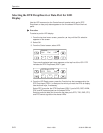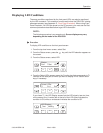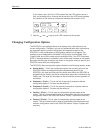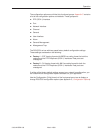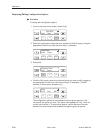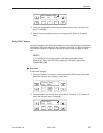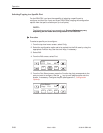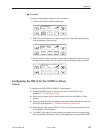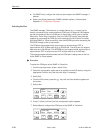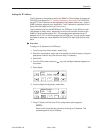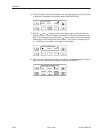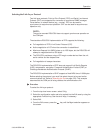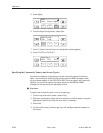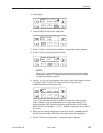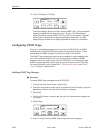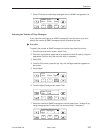
Operation
3-20
3160-A2-GB21-80
March 1999
H For SNMP links, configure the device to send traps to the SNMP manager, if
desired.
H Specify the Telnet password or SNMP validation options, if desired (see
Appendix C,
Configuration Options
).
Selecting the Port
The SNMP manager, Telnet device, or network device (e.g., a router) can be
directly connected to the communications (COM) port. An external LAN Adapter
can be connected to either the COM port or the auxiliary (AUX) port to provide
Ethernet or Token Ring connectivity. Also, the DSU/CSU can be daisy chained
together by connecting the COM port of one device to the AUX port of the other,
providing SNMP or Telnet connectivity. Use the MODEM port when accessing the
DSU/CSU through a dial-up connection.
The COM port can support either synchronous or asynchronous PPP, or
asynchronous SLIP at data rates of up to 38,400 bps. The AUX port can support
data rates up to 38,400 bps. The MODEM port can support either synchronous or
asynchronous PPP, or asynchronous SLIP at data rates of up to 2400 bps.
The example shown below assumes that the COM port is being used as the link
to the SNMP or Telnet system.
" Procedure
To select the COM port as the SNMP or Telnet link:
1. From the top-level menu screen, select Cnfig.
2. Select the configuration option set to be copied into the Edit area by using the
appropriate Function key. Use the scroll keys, if necessary.
3. Select Edit.
4. From the Edit screen, press the
key until the User selection appears on
the screen.
5. Select User.
F1
Edit:
Chan Gen User
F2
F3
6. Press F1 (Next) until the Com Use configuration option appears.
7. Select Mgmt to configure the COM port as the SNMP or Telnet link.
F1
Com Use:
Next Mgmt ASCII
F2
F3



